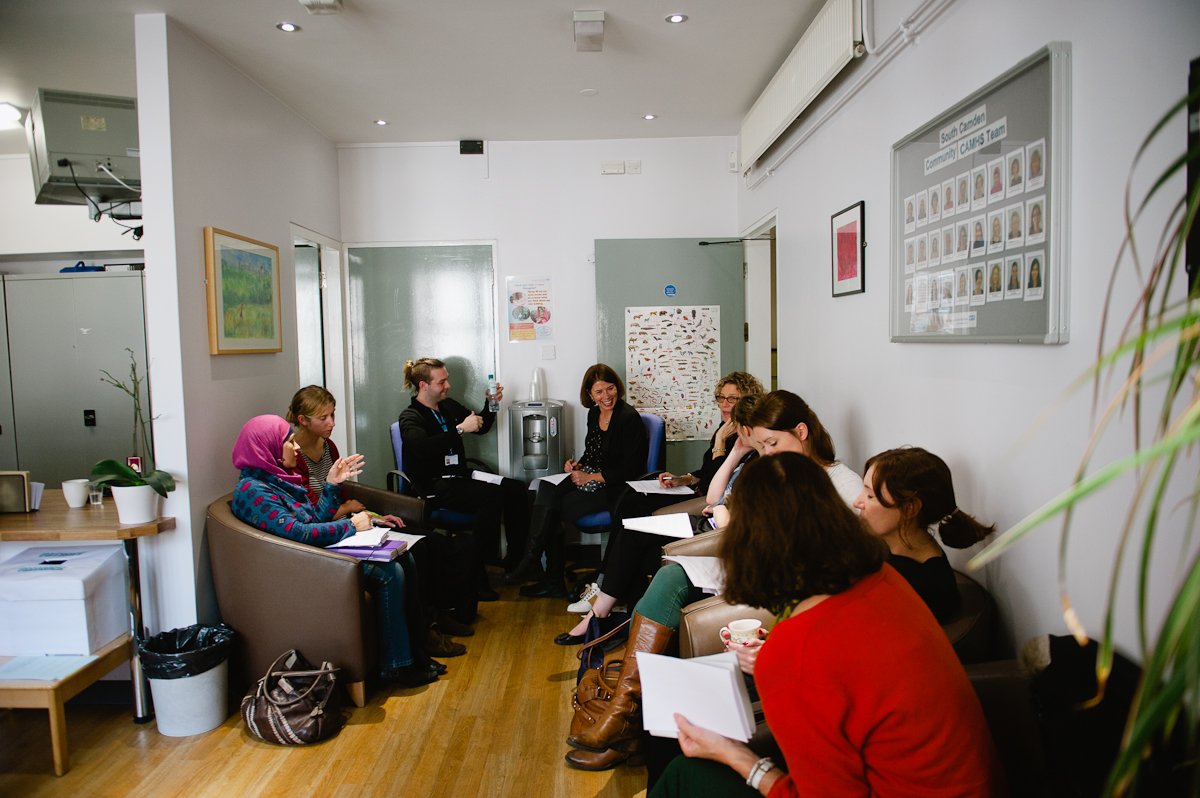
Group relations conferences
Our iconic conference aims to increase your personal effectiveness in any organisational role
A group relations conference is not a didactic conference but rather an experiential one. It offers members the chance to understand more about group processes and how they behave in a variety of group settings.
This includes areas such as leadership, followership, authority, diversity, hierarchy and power structures, in a live way and how they impact on individual responses and group behaviour.
Upcoming conferences
-
Conference 
Leadership and collaboration in organisational life
Course codes: EC1, D12, ED12, D10, M45, M21, M6, CPD64, M7S, M7D, M7E, D58, BD58e, D10D, D10C, D4F, D24, D55, M16, M10, M80, D59I, M34, D4I, D65
The conference is a world within a world and provides a structure in which a temporary organization is co-created by members and staff. This can then be studied by all members and staff of the conference; it is a place to experiment, to play, and to try and better understand the dynamics of organizational life. There will be opportunities to look differently, to listen with imagination, and to understand the impact when this isn’t possible. As with any organisation, this ‘temporary organisation’ will present the tensions of working in particular roles, in different levels of authority, and with differing assumptions about the task and about each others’ capacities to lead and to actively follow.
Participating in a group relations conference offers the potential for deep and transformational learning about both oneself and the dynamics of groups and organizations.
GRCs at the Tavistock
Autumn Conference
The Discovering Leadership conference has its origins in the D10 Masters Consulting and Leading in Organisations: Psychodynamic and Systemic Approaches – for whose students it is a compulsory part of the course (module 4).
Its design reflects the curriculum of the Masters – its focus being on the real time dynamics of management authority. The design includes an event which involves the delegation of management authority to a group of members selected by the wider membership to take up management roles. The process of selection of these temporary leaders, the impact of the act of delegation of authority, and the dynamics associated with delegated authority once the leaders have been authorised provides the conference USP amongst the portfolio of Tavistock GRCs.
The D10 Course Lead is the Sponsor for this conference, holding an overview over time and representing the conference at the Tavistock’s GRC committee. They take up a staff role in the conference typically (but not necessarily) as Associate Director and will be available to support the Director as they take up their role.
Winter Conference
The Winter Conference is the longest established of the Tavistock Clinic GRCs, having first run as a learning event for clinical staff in 1969. It has grown and developed since then, and now has a primary function as a core component of several programmes of study at the Tavistock, including social work, educational psychology, child psychotherapy, systemic family psychotherapy as well as psychiatry and adult psychotherapy trainees. Staff from across different functions at the Trust can also apply and attend, and where space and Covid-related restrictions allow, external members can also apply and attend.
The design of the conference will be for the director to devise but a key element of the work of the December GRC is to offer its members a chance to explore organisational and wider societal dynamics, and as part of this work, which often presents complex and challenging tensions relating to power and privilege, the presence of a Building Experience Group, first initiated in December 2021 will be important, with an existing list of people interested in the next BE-Group already in place.
Spring Conference
The Spring conference has its origins in the D24 Tavistock course, PG Cert in Child, Adolescent and Family Mental Wellbeing: multidisciplinary practice. It grew out of the need to provide a group relations experience for those students with a focus on interagency working and the complexities inherent in that. It is mandatory for students on D24 and over time has evolved to include students on other courses (both mandatory for their training and optional) including the Social work masters, Systemic training and others as well as Tavistock staff and external members.
This conference has a dual task which is to study group dynamics, leadership and authority as they occur while also taking account and considering the emotional impact of taking responsibility for the mental health and wellbeing of children, young people, families and adults. As such all members and staff will have a clinical role in some way.
The design of the conference will be for the director to devise but the small groups will likely hold this dual nature in mind more than other GRCs might and in the institutional events there would be a focus on the interagency aspects of working and what can help or impede this.
Summer Conference
The Summer conference grew out of a collaboration between Maxine Dennis (Consultant Clinical Psychologist & Psychoanalyst, Julian Lousada (Psychoanalyst), and Mary McRae (Professor from New York University), The Adult Department and United States. The first conference was actualised in 2011 with Maxine Dennis, Julian Lousada and Ming Hui-Daniel (Associate Professor) from Manhattan College and conferences have continued Bi-annually since. These conferences provide a space to explore the impact of culture, class and our multiple identities within Organisational life in both leadership and followership roles.
This conference was always aimed at an international collaboration with a cohort joining from abroad in order to maintain an outward facing conference with members mainly external to the Tavistock.
This group relation conference studies group dynamics, leadership, authority as they occur and the impact of current social issues which affect opportunities in a number of different levels within an organisation.
The conference is open to those from psychoanalysis, psychotherapy, counselling, the health service, private and public sectors, government, academia, art.